Introduction:
Oil tank trucks play a crucial role in the transportation and distribution of petroleum products. These specialized vehicles are designed to ensure the safe and efficient delivery of oil from refineries to various destinations. With the constant demand for petroleum products worldwide, it is imperative to have highly efficient oil tank trucks that can handle large quantities of oil while maintaining safety standards. In this article, we will explore the key features that make an oil tank truck efficient, reliable, and capable of meeting the challenges of the industry.
- Tank Capacity and Design:
One of the primary features of an efficient oil tank truck is its tank capacity and design. The tank should be capable of carrying a substantial volume of oil while maintaining structural integrity. The capacity of the tank will depend on the specific requirements of the transportation route and the amount of oil to be delivered. Additionally, the tank design should minimize the risk of oil spillage, leakage, or contamination during transit. High-quality materials, such as stainless steel or aluminum, are commonly used for the construction of oil tank truck tanks due to their durability and resistance to corrosion.
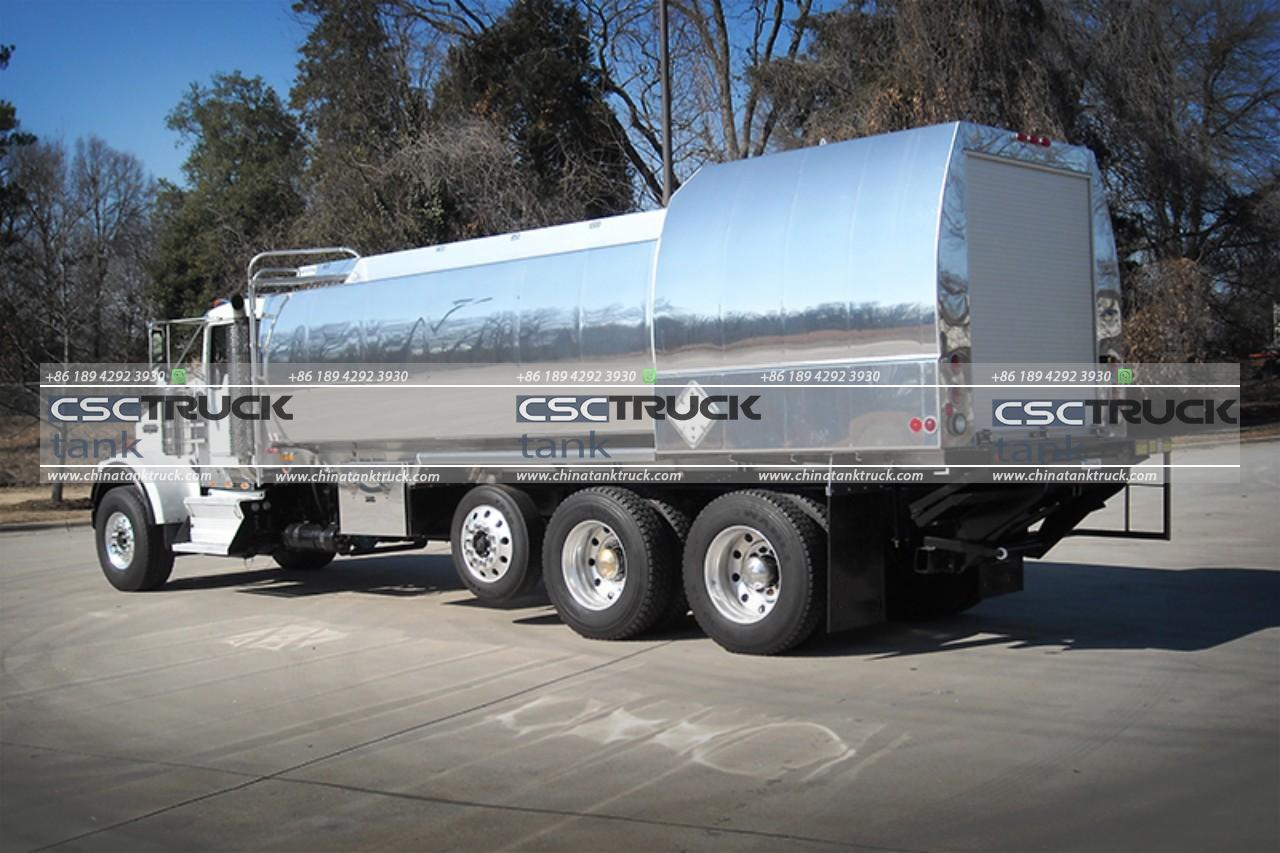
- Safety Features:
Safety is paramount when it comes to the transportation of oil, and an efficient oil tank truck must be equipped with various safety features. These features include emergency shut-off valves, pressure relief vents, and grounding devices to prevent static electricity buildup. An effective vapor recovery system should also be in place to minimize the emission of harmful vapors during loading and unloading operations. Additionally, the truck should be equipped with fire suppression systems, spill containment systems, and adequate signage to comply with safety regulations and ensure the protection of both the environment and personnel involved in the operation.
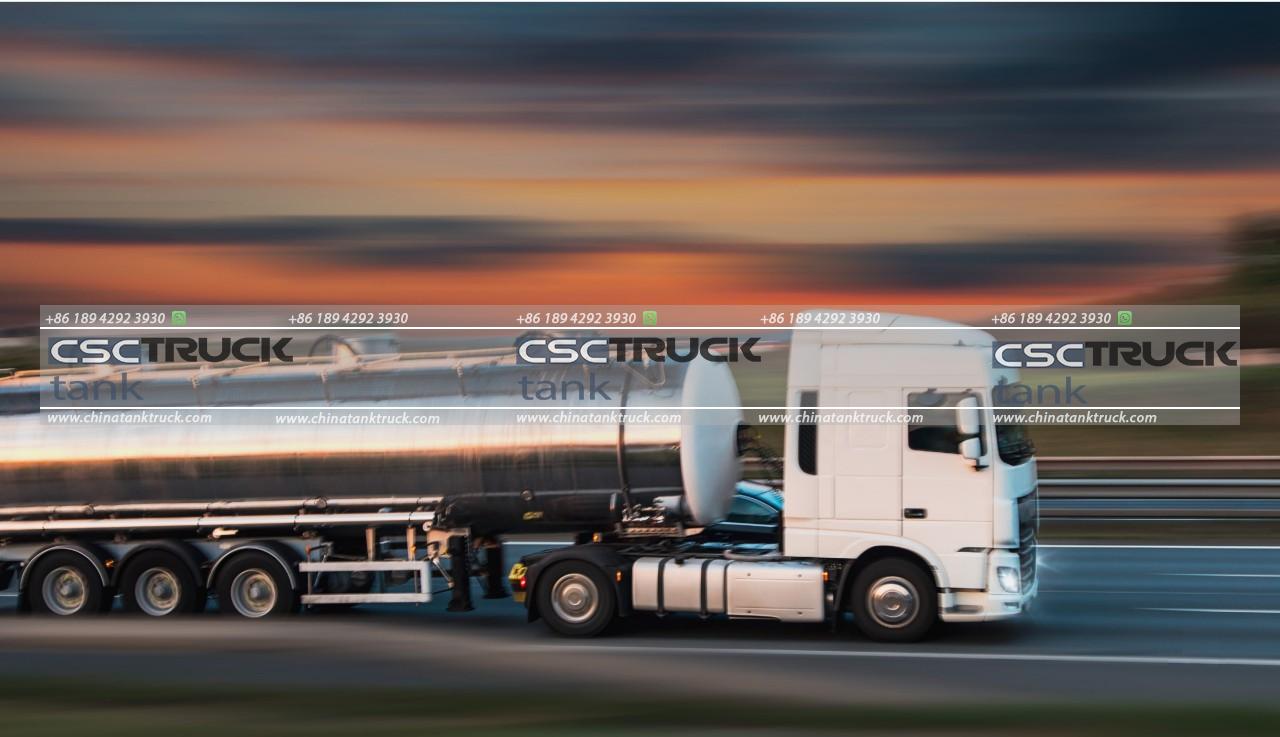
- Pumping and Unloading Mechanism:
Efficiency in oil transportation requires a well-designed pumping and unloading mechanism. An efficient oil tank truck should be equipped with a powerful pump capable of handling different viscosities of oil efficiently. The pump should provide a high flow rate to minimize loading and unloading time, ensuring a smooth and swift operation. Furthermore, the truck should have a well-designed piping system that allows for easy and controlled transfer of oil. Quick-connect couplings and valves should be easily accessible and operate smoothly to facilitate efficient loading and unloading.
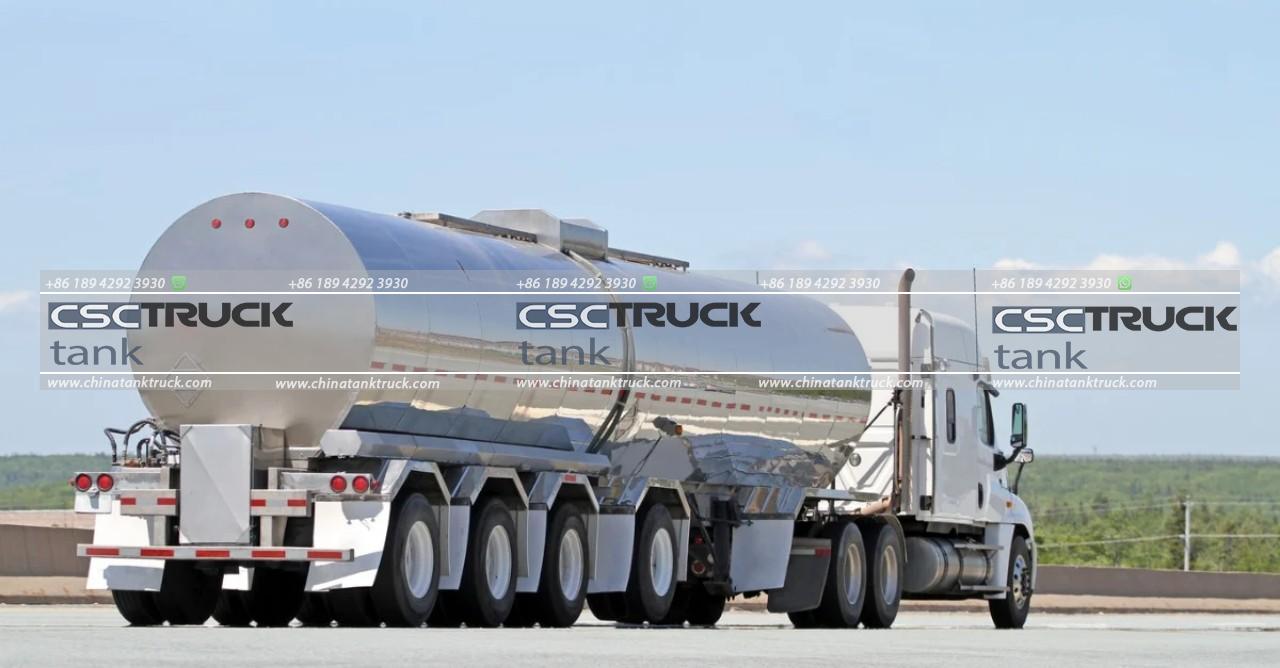
- Advanced Monitoring and Control Systems:
Modern oil tank trucks are equipped with advanced monitoring and control systems that enhance efficiency and safety. These systems include onboard computer systems that provide real-time information on tank levels, pump performance, temperature, pressure, and other crucial parameters. This data enables the driver to make informed decisions and ensure optimal operation. Additionally, GPS tracking and remote monitoring capabilities allow fleet managers to track the location of the oil tank truck, optimize route planning, and respond promptly in case of emergencies or deviations from the designated route.
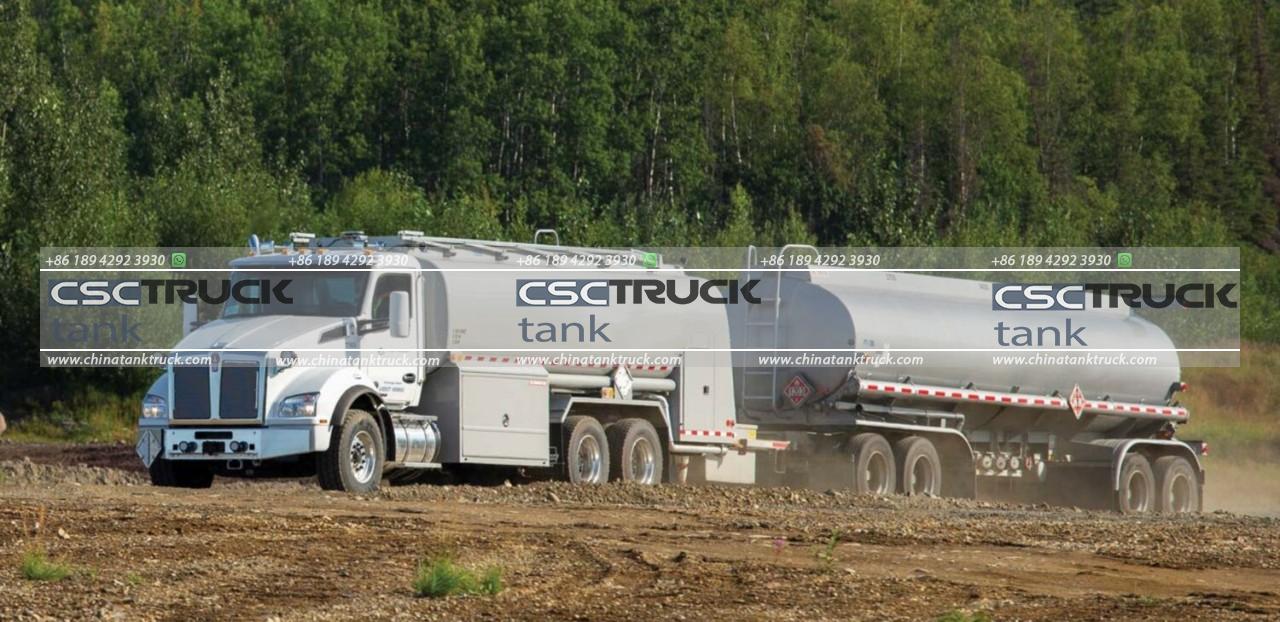
- Maintenance and Durability:
An efficient oil tank truck should be built to withstand the demanding conditions of the oil transportation industry. Regular maintenance is crucial to ensure optimal performance and longevity. Key features that contribute to durability include robust chassis construction, corrosion-resistant materials, and proper sealing to prevent oil leakage. The truck should also be designed for easy access to components, facilitating maintenance and repairs. A well-maintained oil tank truck not only ensures efficiency but also reduces the risk of breakdowns and extends its service life.
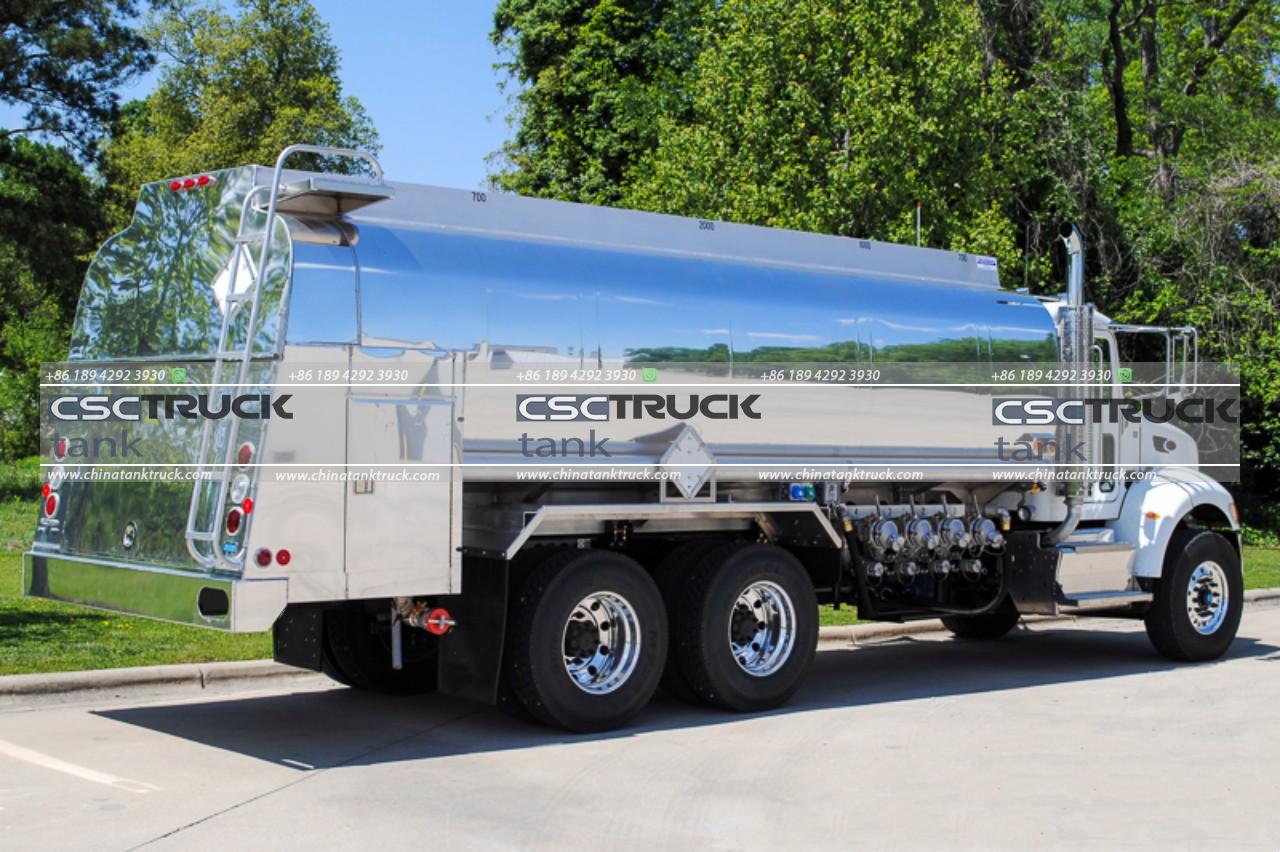
Conclusion:
Efficiency in oil transportation is essential for the seamless supply of petroleum products worldwide. An efficient oil tank truck incorporates key features such as adequate tank capacity and design, safety measures, efficient pumping and unloading mechanisms, advanced monitoring and control systems, and durability through regular maintenance. By focusing on these aspects, oil tank truck manufacturers can provide reliable and efficient vehicles that meet the demands of the industry and ensure the safe and timely delivery of oil.
Efficient oil tank trucks not only benefit transportation companies but also contribute to environmental sustainability. By minimizing the risk of oil spills, leaks, and emissions, these trucks help protect the environment from contamination and reduce the ecological impact of oil transportation. Moreover, their ability to handle large volumes of oil efficiently reduces the need for multiple trips, thereby reducing fuel consumption and carbon emissions.
In addition to the key features mentioned above, other factors contribute to the overall efficiency of oil tank trucks. These include optimized aerodynamics to reduce wind resistance and improve fuel efficiency, ergonomic design for the comfort and safety of the driver, and compliance with local regulations and standards.
The continuous advancement in technology is further enhancing the efficiency of oil tank trucks. For instance, the integration of telematics systems allows for real-time monitoring of fuel consumption, route optimization, and vehicle diagnostics. This data-driven approach enables transportation companies to identify areas for improvement, increase operational efficiency, and reduce costs.
Furthermore, the adoption of alternative fuel options and the development of hybrid or electric oil tank trucks are being explored to minimize the environmental impact of petroleum transportation. These innovative solutions aim to reduce carbon emissions, noise pollution, and dependency on fossil fuels while maintaining the efficiency and functionality required for oil transportation.
It is worth mentioning that while efficiency is crucial, safety remains the top priority in the oil transportation industry. Oil tank trucks must comply with stringent safety regulations and undergo regular inspections to ensure their roadworthiness and adherence to safety standards. Training programs for drivers and operators also play a vital role in maintaining safe and efficient operations.
In conclusion, an efficient oil tank truck encompasses a range of key features that promote safety, reliability, and environmental sustainability. The tank capacity and design, safety features, pumping and unloading mechanisms, advanced monitoring and control systems, and maintenance practices are all critical aspects of an efficient oil tank truck. As technology continues to evolve, there is a constant drive toward innovation and the adoption of greener alternatives, further enhancing the efficiency and sustainability of oil transportation. By prioritizing these features and embracing advancements in the field, the oil transportation industry can continue to meet the global demand for petroleum products efficiently and responsibly.

